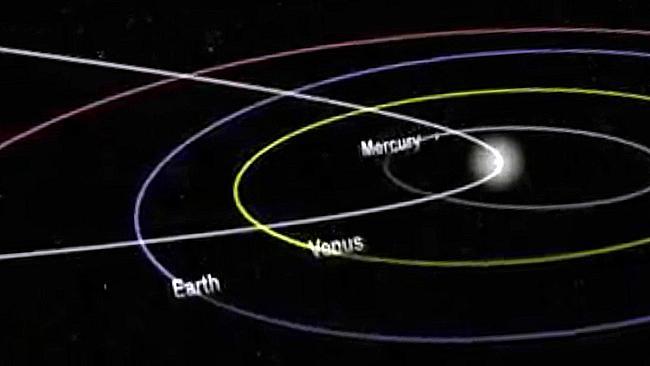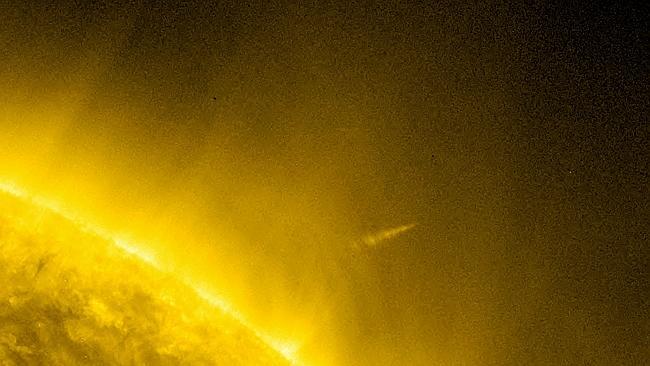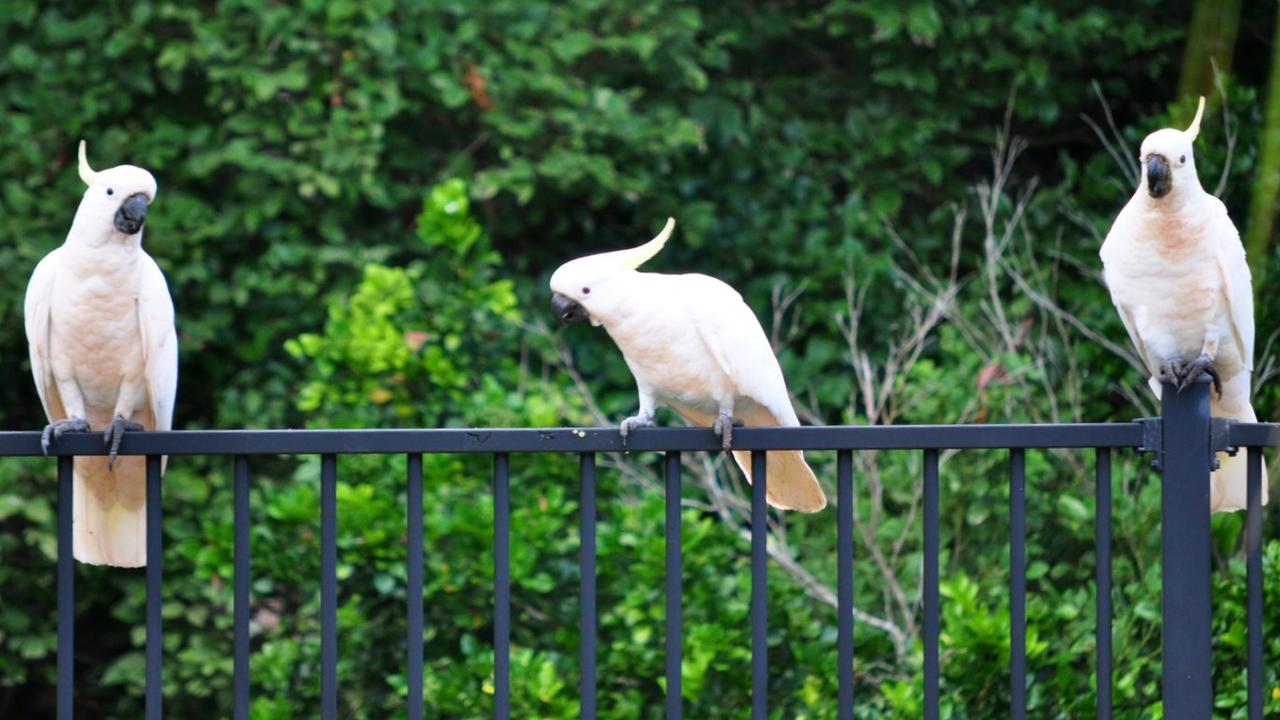Comet Ison could cause the biggest explosion ever recorded and extreme meteor mayhem
BE AFRAID. In seven days a comet could cause the biggest explosion ever recorded. That's if we're lucky. If we're not, it could generate mayhem and meteor showers.

Science
Don't miss out on the headlines from Science. Followed categories will be added to My News.
YAAAAAAAAAAAAARRRRRRRRRGGGH!
That's the sound of the last rasping noise ever to leave your throat as you gaze skywards in shock at the meteor shower which could reduce you to ashes in approximately one week.
Then again, you may get to watch Dancing with the Stars after all. Either way, the outlook is bleak.
A giant comet called Comet ISON seems certain to disintegrate in our cosmic neighbourhood next Tuesday. We enlisted the help of well-known astronomer "Astro" Dave Reneke to find out exactly what's going on up there.
HOLD ON A MINUTE, WHAT'S A COMET AGAIN?
We tend to think of comets as fiery beasts aloft in the heavens, but they're actually made of ice - and what appears to be a flaming tail is just chunks of ice reflecting the sun's rays as they pass by the sun.
"They're basically dirty snowballs," Astro Dave explains. "Comets are remnants of the make-up of the solar system. They are the flotsam and jetsam left over, if you like."
Comets are more than just astral junk hurtling around to nowhere in particular. According to Astro Dave, they could actually be responsible for nothing less significant than life on earth itself.
"We don't know why comets are made of ice, but we think they may have brought ice to the earth, which may have helped create much of our water," Astro Dave explains.
"We also know that they contain amino acids, which are the so-called building blocks of life. So comets are messengers but they could also be seeds."
SO WHAT'S THIS ONE UP TO AND IS IT REALLY DANGEROUS?
As news.com.au reported on the weekend, Comet ISON was discovered by amateur astronomers in Russia and Belarus in September last year. It will pass just 1.2 million km from the sun on November 29, and will pass even closer to earth on the 26th of the month. That's next Tuesday.
What happens next is anyone's guess. As Astro Dave explains, there are three possible scenarios:

1. It misses the sun by a few million kilometres, then spins off into space unscathed. Astronomers hope this happens so they can keep studying it afterwards.
2 It passes close enough to the sun to be pulled to pieces by the sun's gravity. It could then fragment in the sky, possibly resulting in a meteor shower on earth. Astro Dave believes the sun should have enough gravity to stop this happening but he's not 100 per cent sure. The good news is, there has never been a recorded death of a person struck by a meteorite. People have been struck though, so watch your back next Tuesday.
3. In the third scenario, which scientists really don't want because it would spoil all their fun, the comet is pulled into the sun. This is called a sun grazer, and pretty much means a harmless death for the comet. But the news is not all dull, because that would result in one seriously large explosion. Indeed, this could be the largest explosion ever observed by mankind, Astro Dave says.
Giant explosions that hurt nobody (except comets). What's not to dig about that?
YEAH, BUT AREN'T THESE THINGS ALWAYS FIZZERS?
Halley's Comet was a fizzer. Back in 1986, they told us the comet that only visits once a lifetime was going to be huge. It wasn't. In fact, it was little more than a faint blob about the size of the moon and nowhere near as bright.
Astro Dave says that's because of all the hype generated on the comet's previous pass in 1910. On that occasion, the comet lit up as much as two thirds of the night sky. But it was much closer that time.

As for this comet, there's no telling just how spectacular - or potentially dangerous - it will prove to be.
"One of the reasons you can't tell what it's going to do is you can't tell how big it is," Astro Dave explains.
"We don't know how much ice is on it, and it's hard to measure the amount of ice because you don't really know until it is close to the sun and the ice starts to reflect."
"It could be the biggest celestial sky show in history, and who knows what after that."
We're tipping you should probably not cancel your appointments next week. Just make sure you schedule them somewhere indoors.

